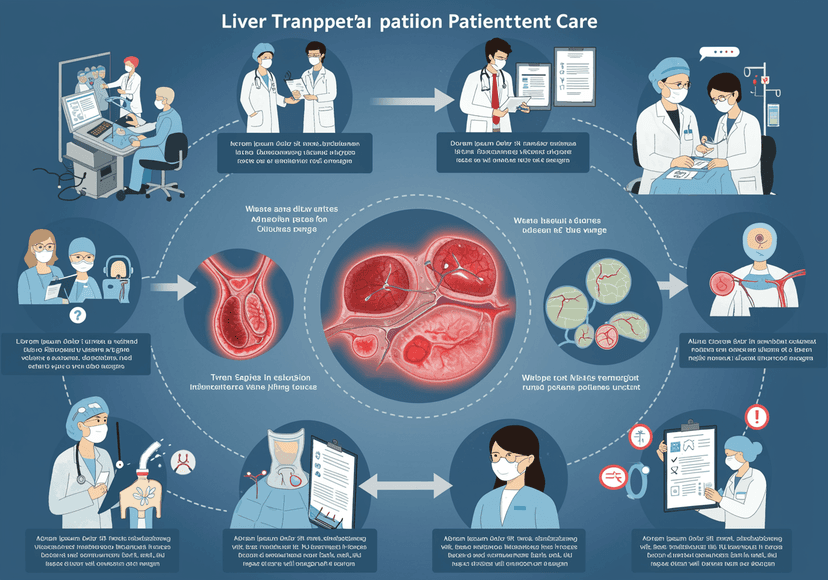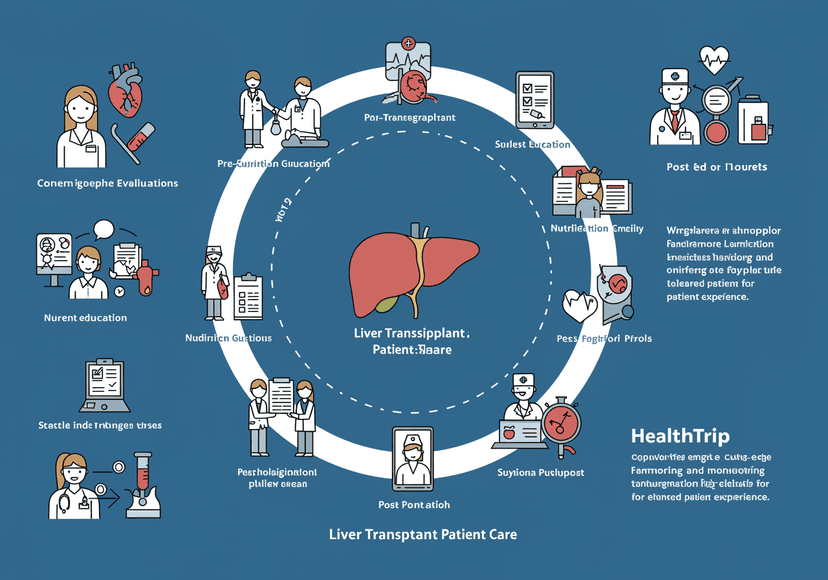
The Role of Nutrition in Transplant Recovery
08 Oct, 2024
 Healthtrip
HealthtripWhen it comes to transplant recovery, nutrition plays a vital role in helping patients regain their strength, rebuild their health, and reduce the risk of complications. A well-planned diet can make all the difference in the recovery journey, and yet, it's often overlooked. As a transplant patient, it's essential to understand the significance of nutrition in your recovery and make informed choices to support your health.
Nutrition and Immune System
After a transplant, the immune system is suppressed to prevent rejection of the new organ. However, this suppression also makes patients more susceptible to infections and illnesses. A diet rich in essential nutrients can help boost the immune system, reducing the risk of infections and promoting a faster recovery. Key nutrients that support immune function include vitamin C, vitamin E, zinc, and iron.
Most popular procedures in India
Antioxidants and Inflammation
Transplant surgery can cause oxidative stress, leading to inflammation and tissue damage. Antioxidants, found in foods like berries, leafy greens, and nuts, help combat oxidative stress, reducing inflammation and promoting healing. A diet rich in antioxidants can also reduce the risk of chronic diseases, such as heart disease and cancer, which are common complications in transplant patients.
Wellness Treatments
Give yourself the time to relax
Lowest Prices Guaranteed!

Lowest Prices Guaranteed!
Nutrition and Wound Healing
Transplant surgery involves significant tissue damage, and proper wound healing is crucial to prevent complications like infection and prolonged hospital stays. Adequate nutrition is essential for wound healing, with protein, vitamin C, and zinc playing critical roles. A diet rich in these nutrients can promote collagen synthesis, improve wound strength, and enhance the overall healing process.
Protein and Muscle Mass
Transplant patients often experience muscle wasting due to prolonged hospital stays, reduced mobility, and increased inflammation. Adequate protein intake is vital to preserve muscle mass, with a daily intake of 1.5-2 grams of protein per kilogram of body weight recommended. Foods rich in protein, such as lean meats, fish, eggs, and dairy products, can help support muscle growth and repair.
Nutrition and Medication Management
Transplant patients often require lifelong medication to prevent rejection and manage complications. However, these medications can have adverse effects on nutrition, leading to weight changes, digestive issues, and nutrient deficiencies. A registered dietitian or healthcare provider can help patients develop a personalized nutrition plan that takes into account medication side effects and ensures optimal nutrition.
Managing Side Effects
Common side effects of transplant medications include nausea, vomiting, and diarrhea, which can lead to dehydration and electrolyte imbalances. A diet rich in electrolyte-rich foods, such as bananas, avocados, and coconut water, can help manage these side effects. Additionally, small, frequent meals and ginger-based foods can help alleviate nausea and vomiting.
Nutrition and Lifestyle Changes
Transplant recovery is not just about nutrition; it's also about adopting a healthy lifestyle. Patients should aim to incorporate physical activity, stress management, and adequate sleep into their daily routine. A healthy lifestyle can help reduce the risk of complications, improve mental health, and enhance overall quality of life.
Physical Activity and Stress Management
Regular physical activity can help improve cardiovascular health, reduce stress, and enhance overall well-being. Transplant patients should aim for at least 30 minutes of moderate-intensity exercise, such as brisk walking, cycling, or swimming, three to four times a week. Stress management techniques, such as meditation, yoga, and deep breathing exercises, can also help reduce anxiety and promote relaxation.
Related Blogs

Comprehensive Liver Transplant Patient Care at Healthtrip
Learn how Healthtrip provides comprehensive and compassionate patient care throughout

Comprehensive Liver Transplant Patient Care at Healthtrip
Learn how Healthtrip provides comprehensive and compassionate patient care throughout

The Role of Nutrition in Orthopedic Recovery
Fuel your recovery with the right nutrition for optimal orthopedic

Women's Holistic Health and Nutrition
The importance of nutrition for women's holistic health

Mindful Eating for Women's Health
The power of mindful eating for women's holistic health

Body Care for a Healthier You
Discover the secrets to a healthier, happier you at our










